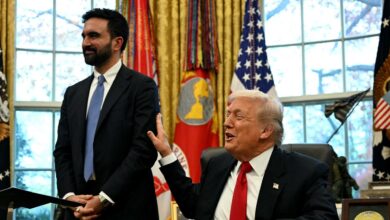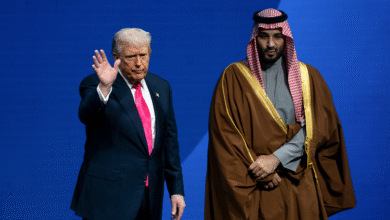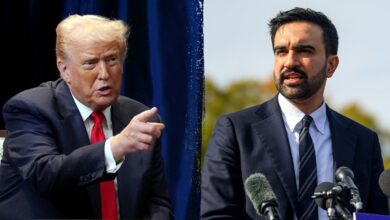Trump and Xi avoid talks on Taiwan despite rising military tensions

NEWYou can now listen to Fox News articles!
When President Donald Trump met with Chinese President Xi Jinping on Thursday, the two leaders talked about trade and drug trafficking — but avoided the one issue that could very likely drag their nations into war: Taiwan.
Both sides have reasons to keep tensions low. The Trump administration is seeking cooperation from China on border control and drug trafficking, while Xi faces growing economic pressures at home. Yet even as diplomacy aims for calm, U.S. defense planners have long been preparing for potential conflict in the Indo-Pacific region.
Tensions have only intensified in recent years. Washington approved high-profile arms sales to Taiwan, U.S. lawmakers such as then-House Speaker Nancy Pelosi made high-level visits, and former President Joe Biden repeatedly pledged to defend the island — only for his aides to later clarify that the U.S. still adheres to its longstanding “One China” policy.
Secretary of War Pete Hegseth, however, discussed Taiwan with his Chinese counterpart Dong Jun. “Our position on Taiwan remains unchanged. President Trump has said that as well,” Hegseth told reporters. “The conversation was constructive. She was frank.”
Trump, XI meet to resolve trade tensions caused by US tariffs

President Donald Trump, left, and Chinese President Xi Jinping, right, shake hands before their meeting in South Korea on Thursday. (AP Photo/Mark Schiefelbein)
Meanwhile, China has significantly increased its military pressure on Taiwan through large-scale exercises simulating a blockade and invasion. The People’s Liberation Army now conducts near-constant air and naval operations encircling the island – exercises that have become larger, more complex and more frequent. What once served as a symbolic show of force now resembles a dress rehearsal aimed at cutting off Taiwan’s access to the outside world.
The silence from Trump and Xi stood in stark contrast to the noise of military preparations on both sides of the Pacific.
Taiwan watchers wonder how much the United States would take to defending the island if China invaded — an intentional policy known as strategic ambiguity that Trump has taken to a new level.
The president optimistically predicted earlier this month that China would not invade Taiwan.
“I think everything will be fine with China. China doesn’t want to do this,” he said. “As far as Taiwan goes – and that’s not to say it’s not the apple of its eye, because it probably is – but I don’t see anything happening.”
Compared to other conflict zones, Trump has said little about the prospect of war in the Indo-Pacific, leaving allies and adversaries uncertain about how far he would go to defend Taiwan.
Some analysts favoring strong U.S. support for Taiwan were relieved that the issue was not raised, given concerns that Trump could trade the island’s interests for economic concessions — such as looser restrictions on Chinese mineral exports, larger agricultural purchases or cooperation to combat precursor chemicals fueling the U.S. fentanyl crisis.
RUBIO SAYS COMMITMENT TO TAIWAN WILL NOT CHANGE AMID TRADE NEGOTIATIONS WITH CHINA
“I think it’s a good thing that Taiwan wasn’t brought up,” said Raymond Kuo, a senior political scientist at the RAND Corporation. “There has been a lot of concern in Taiwan, particularly recently, about the possibility of the market being sold off as part of some sort of grand bargain between the United States and China.”
Matthew Kroenig, vice president of the Atlantic Council’s Scowcroft Center for Strategy and Security, said he viewed the omission as “neutral,” although he would have preferred the president to reaffirm the “one China” policy while warning Beijing to “end its almost daily military coercion and gray zone activities against Taiwan.”
Kuo noted that Taiwan has sharply increased its defense spending as tensions rise, increasing its budget by about 75% over the past two years and now allocating a larger share of public funds to defense than the United States does proportionally. He nevertheless warned that production delays in U.S. arms deliveries – including a delay of more than $20 billion earlier this year – could weaken Taiwan’s ability to keep pace with China’s military modernization.
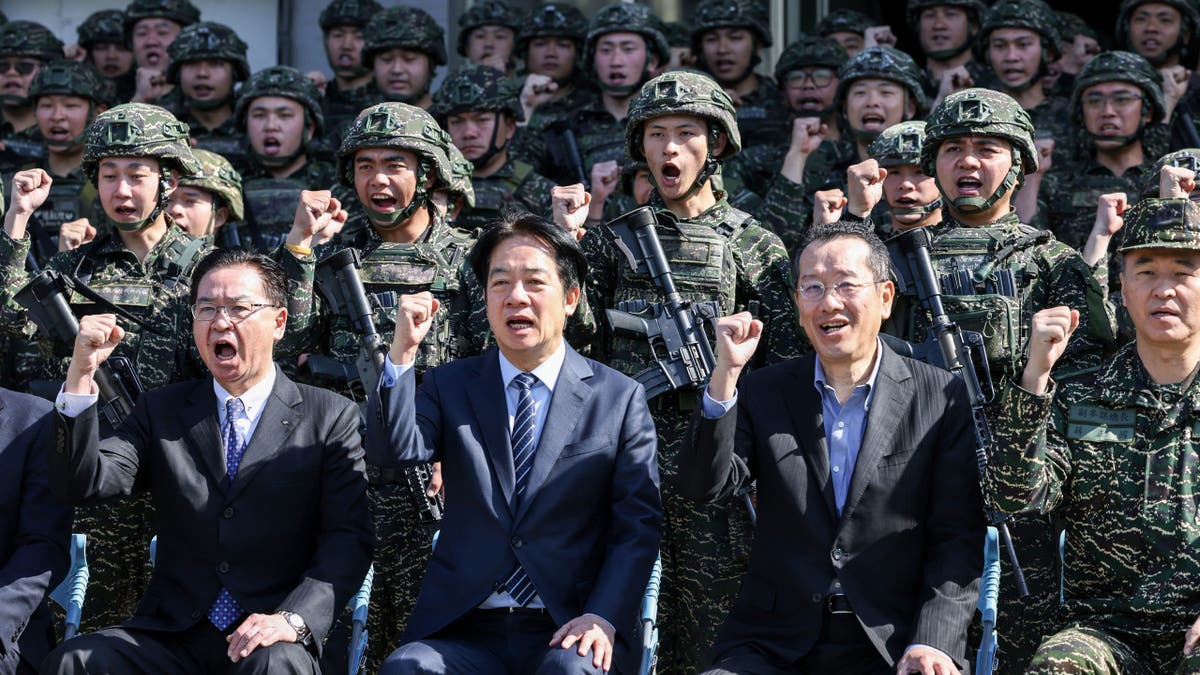
Taiwan has sharply increased its defense spending as tensions rise, increasing its budget by about 75% over the past two years and now allocating a larger share of public funds to defense than the United States, proportionately. (Photo by I-HWA CHENG/AFP via Getty Images)
Jennifer Kavanagh, director of military analysis at Defense Priorities, said she was not surprised that Taiwan had remained off the official agenda. “There were so many trade issues that were really a priority for both sides,” she said. “Concerns about a ‘grand deal’ on Taiwan have always seemed far-fetched.”
But Kavanagh warned that the United States and China cannot avoid the subject indefinitely. “Things have gotten significantly worse in recent years, and long-standing understandings around the one-China policy and strategic ambiguity have begun to erode,” she said. “It is important that both sides reaffirm their commitment to peaceful means to resolve their differences.”
She added that the military balance in the region has shifted “quite quickly in China’s favor,” making U.S. deterrence less credible if tensions continue to rise. “The time for pivoting to Asia is probably over,” Kavanagh said, suggesting that Washington must now focus on managing competition rather than reversing it.
Inside the Trump administration, analysts say these competing instincts are on display. “There are actually two policies toward China,” Kroenig said. “Trade specialists seek deals, while defense and national security professionals focus on the Chinese threat, particularly that to Taiwan.” This divide reflects Washington’s broader struggle to balance economic engagement and military deterrence.
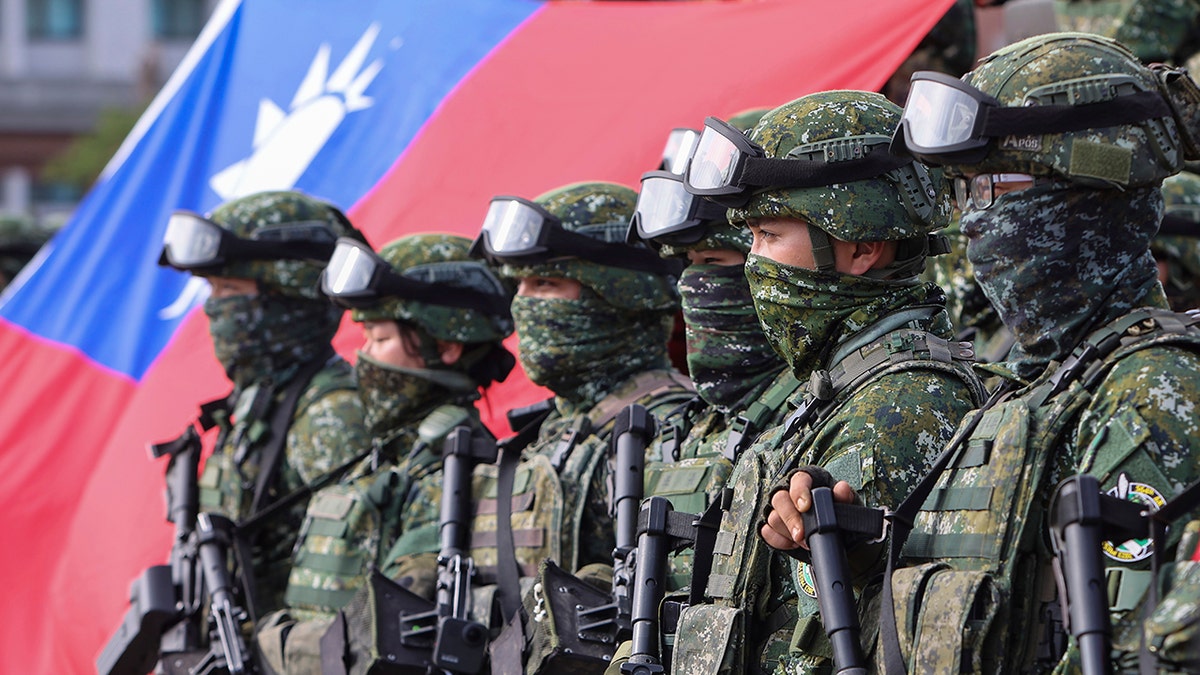
Taiwan expert Raymond Kuo warned that production delays in U.S. arms deliveries — including a delay that exceeded $20 billion earlier this year — could weaken Taiwan’s ability to keep pace with China’s military modernization. (Daniel Ceng/AP Photo)
CLICK HERE TO DOWNLOAD THE FOX NEWS APP
Kroenig added that Trump’s unpredictability may itself be part of his deterrence strategy. “This leaves our adversaries with uncertainty and worry,” he said. “China is unlikely to attack Taiwan under his leadership.”
Yet Trump’s meeting with Xi provided little clarity on the president’s final position on Taiwan — or how he would respond if Beijing tested the limits of U.S. commitment to the island’s security. For now, the two leaders appear content to keep quiet the most volatile issue in their relationship. Calm may help avoid confrontation in the short term, but it leaves one of the world’s most dangerous hotspots lingering just beneath the surface.
